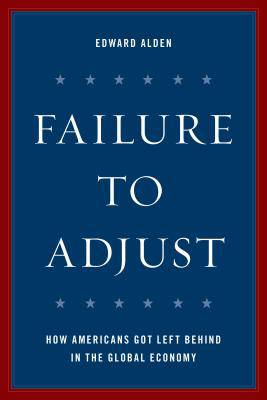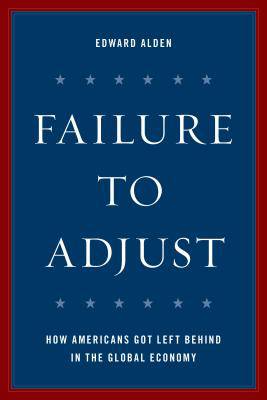
- Afhalen na 1 uur in een winkel met voorraad
- Gratis thuislevering in België vanaf € 30
- Ruim aanbod met 7 miljoen producten
- Afhalen na 1 uur in een winkel met voorraad
- Gratis thuislevering in België vanaf € 30
- Ruim aanbod met 7 miljoen producten
Zoeken
€ 65,45
+ 130 punten
Uitvoering
Omschrijving
Americans know that something has gone wrong in this country's effort to prosper in the face of growing global economic competition. The vast benefits promised by the supporters of globalization, and by their own government, have never materialized for most Americans. This book is the story of what went wrong, and how to correct the course. It is a compelling history of the last four decades of US economic and trade policies that have left Americans unable to adapt to or compete in the current global marketplace. Failure to Adjust argues that, despite the deep partisan divisions over how best to respond to America's competitive challenges, there is achievable common ground on such issues as fostering innovation, overhauling tax rules to encourage investment in the United States, boosting graduation rates, investing in infrastructure, and streamlining regulations. The federal government needs to become more like U.S. state governments in embracing economic competitiveness as a central function of government. The book presents an especially timely analysis of the trade policies of the Obama administration, and discusses how America can reassert itself as the leader in setting rules for international economic competition that would spread the benefits of global trade and investment more broadly.
Specificaties
Betrokkenen
- Auteur(s):
- Uitgeverij:
Inhoud
- Aantal bladzijden:
- 258
- Taal:
- Engels
- Reeks:
Eigenschappen
- Productcode (EAN):
- 9781442272606
- Verschijningsdatum:
- 20/10/2016
- Uitvoering:
- Hardcover
- Formaat:
- Genaaid
- Afmetingen:
- 152 mm x 231 mm
- Gewicht:
- 521 g

Alleen bij Standaard Boekhandel
+ 130 punten op je klantenkaart van Standaard Boekhandel
Beoordelingen
We publiceren alleen reviews die voldoen aan de voorwaarden voor reviews. Bekijk onze voorwaarden voor reviews.











